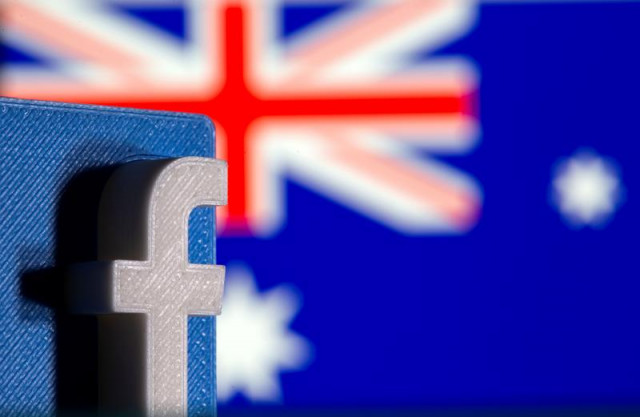Australian lawmakers expected to pass amendments to Facebook, Google law
Facebook said it would restore Australian users’ access to news after it had reached a compromise with the government

Australian lawmakers are expected to approve amendments to landmark legislation to force Facebook and Alphabet’s Google to pay media companies for news content, despite opposition from some minor political parties.
The government introduced amendments to the so-called Media Bargaining Code after Facebook last week escalated a dispute over the new laws by blocking Australian users from sharing and viewing news content on its popular social media platform.
Australia’s Senate began debating the amendments on Wednesday. The ruling conservative Liberal Party does not have a majority in the upper house, but support from the opposition Labor Party is expected to be enough to pass the bill.
Facebook 'refriends' Australia after changes to media laws
“What we’ve sworn to do is create a level playing field,” Australian Treasurer Josh Frydenberg told Sky News on Wednesday.
“We’ve sought to sustain public interest journalism in this country, and we’ve also sought to enhance and encourage those commercial deals between the parties.”
Facebook on Tuesday said it would restore Australian users’ access to news in light of the compromise it had reached with the government.
In one major change, Frydenberg will be given the discretion to decide that either Facebook or Google need not be subject to the code if they make a “significant contribution to the sustainability of the Australian news industry.”
The original legislation had required the tech giants to submit to forced arbitration if they could not reach a commercial deal with Australian news companies for their content, effectively allowing the government to set a price.
Facebook, Twitter outpaced by smaller platforms in fight against harmful content
Some politicians and media companies are concerned the change allows Frydenberg to exempt Facebook or Google from the new laws even if they do not strike deals with all media companies, to the detriment of smaller publishers.
“This changes the bill significantly,” independent senator Rex Patrick, who plans to vote against the amended bill, told Reuters. “The big players could successfully negotiate with Facebook or Google. The minister then doesn’t designate them, and all the little players miss out.”
Lee O’Connor, owner, and editor of the regional newspaper The Coonamble Times, said the amendments appeared to favor big media groups.
“It’s the vagueness of the language that’s the main concern, and the minister’s discretion is part of that,” O’Connor said.
Frydenberg has said he will give Facebook and Google time to strike deals with Australian media companies before deciding whether to enforce his new powers.
CONTENT DEALS
The code was designed by the government and competition regulator to address a power imbalance between the social media giants and publishers when negotiating payment for news content displayed on the tech firms’ sites.
After first threatening to withdraw its search engine from Australia, Google has instead struck a series of deals with several publishers, including a global news deal with News Corp.
Major television broadcaster and newspaper publisher Seven West Media on Tuesday said it had signed a letter of intent to reach a content supply deal with Facebook within 60 days.
Rival Nine Entertainment Co also revealed on Wednesday it was in negotiations with Facebook.
“At this stage, we’re still obviously proceeding with negotiations,” Nine chief executive Hugh Marks told analysts at a company briefing on Wednesday. “It is really positive for our business and positive particularly for the publishing business.”



















COMMENTS
Comments are moderated and generally will be posted if they are on-topic and not abusive.
For more information, please see our Comments FAQ